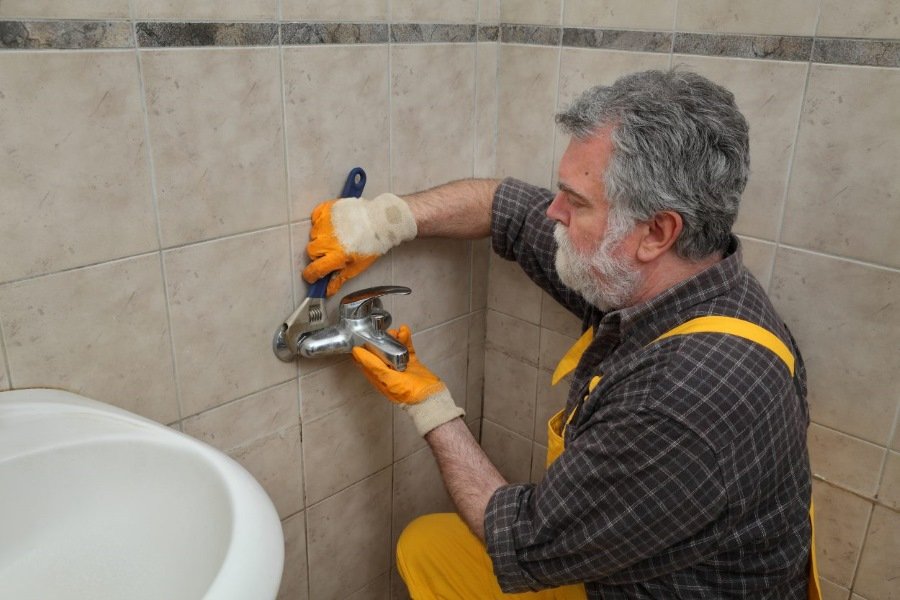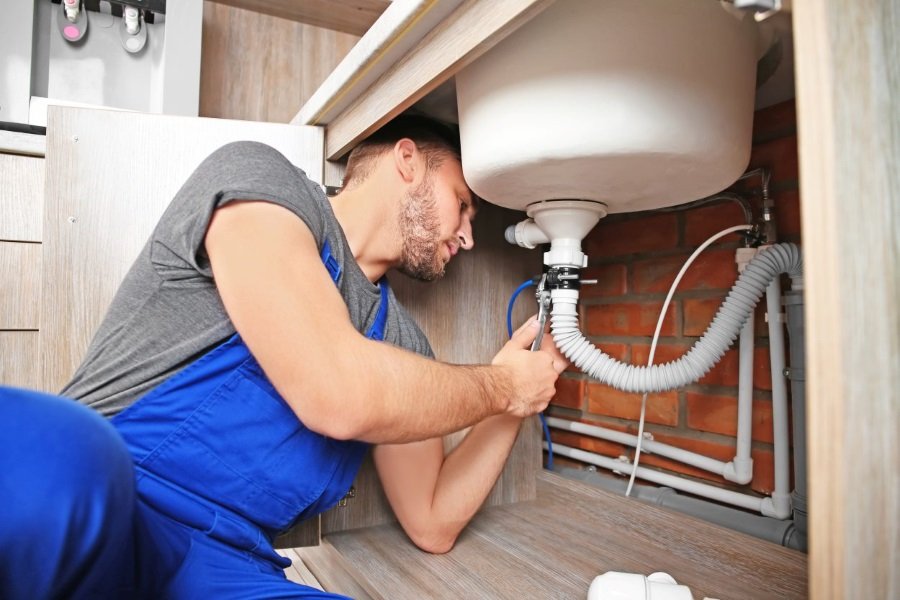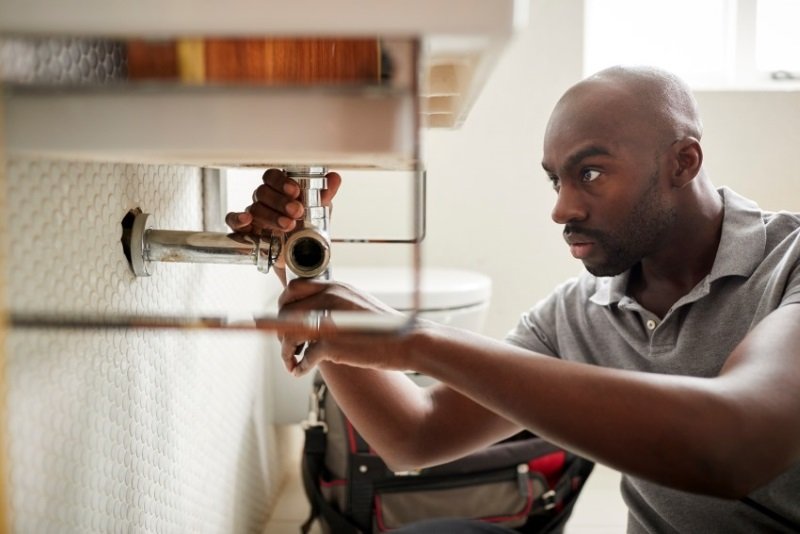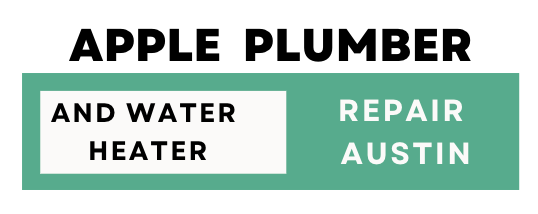Fix Water Heater – Austin,TX
CALL FOR AN ESTIMATE
How urgent is a clogged toilet?
The urgency of a clogged toilet depends on several factors:
1. Severity of the clog: If the toilet is completely blocked and overflowing, it requires immediate attention to prevent water damage to your home. In such cases, it’s urgent to contact a emergency plumber address the clog as soon as possible to avoid further damage and potential health hazards from wastewater.
2. Availability of alternative toilets: If you have multiple bathrooms in your home and the clogged toilet is not the only option available, the urgency may be lessened. However, it’s still advisable to address the clog promptly to avoid inconvenience and potential worsening of the situation.
3. Extent of use: Consider the frequency of use and the number of people relying on the toilet. If the clogged toilet is the primary bathroom used by several people or if it’s the only toilet in the household, addressing the clog promptly is important to restore normal functioning.
4. Duration of the clog: If the toilet has been clogged for an extended period, it may lead to unpleasant odors, unsanitary conditions, and potential health risks. In such cases, it’s best to resolve the issue as soon as possible to maintain cleanliness and hygiene in your home.
In general, while a clogged toilet may not always be an emergency, it’s typically best to address the issue promptly to prevent further problems and restore normal bathroom function. If you’re unable to clear the clog yourself or if you’re concerned about potential damage or health risks, it’s advisable to seek assistance from a plumber or plumbing companies close to me.



Plumber Near Me….
Request A Quote
We promise to get back to you as soon as possible.
What plumbing services do you offer?
DRAIN CLEANING SERVICES
WATER HEATER REPAIR /REPLACEMENT
TOILET REPLACEMENT
PLUMBING SERVICES
KITCHEN SINK REPLACEMENT
GARBAGE DISPOSAL REPAIR
RESIDENTIAL PLUMBING SERVICES
COMMERCIAL PLUMBING SERVICES
GARBAGE DISPOSAL REPLACEMENT
Schedule An Estimate
CALL NOW (512) 894-6169
How urgent is a leaking pipe?
The urgency of a leaking pipe depends on several factors:
1. Extent of the leak: If the leak is minor and confined to a small drip, it may not be considered an emergency, but it still requires prompt attention to prevent it from worsening over time.
2. Location of the leak: A leaking pipe in an easily accessible area, such as under a sink, may be less urgent compared to a leak in a hidden or hard-to-reach location, such as behind a wall or in the ceiling. Leaks in hidden areas can cause significant damage before they are noticed, so they should be addressed promptly.
3. Rate of leakage: If the pipe is leaking water rapidly or if the leak is causing flooding or significant water damage, it requires immediate attention to prevent further property damage and potential safety hazards.
4. Type of water leaking: The urgency may also depend on the type of water leaking from the pipe. Freshwater leaks may be less urgent than leaks from sewage or wastewater pipes, which can pose health risks and require immediate attention.
5. Impact on water supply: If the leaking pipe is affecting the water supply to your home, such as causing low water pressure or complete loss of water, it requires urgent attention to restore normal water flow.
In general, any leak from a pipe should be addressed promptly to prevent further damage to your property and to avoid potential health hazards. Even minor leaks can lead to mold growth, structural damage, and increased water bills if left untreated. If you’re unable to locate or repair the leak yourself, it’s advisable to seek assistance from a plumber or professional service as soon as possible.
How do you tell if a pipe is leaking underground?
Detecting underground pipe leaks can be challenging, but there are several signs to watch for:
1. Unexplained increase in water bill: If you notice a sudden and unexplained increase in your water bill, it could indicate a hidden leak in your underground pipes.
2. Water pooling: Keep an eye out for areas of water pooling in your yard, especially if the weather has been dry. This could indicate a leak in an underground water line.
3. Soggy or muddy areas: If certain areas of your yard are consistently soggy or muddy, it could be due to water leaking from an underground pipe.
4. Visible sinkholes: Sinkholes or depressions in your yard, driveway, or sidewalk can be caused by soil erosion due to water leaking from underground pipes.
5. Sudden decrease in water pressure: A sudden decrease in water pressure throughout your home could be a sign of a leak in an underground water line.
6. Unexplained sounds: If you hear the sound of running water when no water is being used in your home, it could indicate a leak in an underground pipe.
7. Discoloration of vegetation: If grass, plants, or other vegetation in your yard are unusually green or lush in certain areas, it could be due to a leak in an underground water line providing extra moisture to those areas.
8. Mold or mildew: If you notice mold or mildew growing in areas of your home where it’s not usually present, it could be due to water leaking from an underground pipe and causing moisture problems indoors.
9. Water heater: if you suspect a leak around your water heater, check for puddles or dampness around the unit, rust or corrosion on the tank, or a noticeable drop in hot water temperature.
If you suspect a leak in your underground pipes based on any of these signs, it’s important to contact a professional plumber close to me or leak detection specialist to locate and repair the leak as soon as possible. Delaying repairs can lead to further damage and increased water loss.
Who pays for a leaking water pipe?
1. Ownership responsibility: In general, property owners are responsible for maintaining and repairing the water pipes within their property boundaries, including those that run underground.
2. Utility responsibility: If the leaking pipe is part of the municipal water supply system or a utility-owned pipe that runs between the property line and the main water supply line, the utility company may be responsible for repairing the leak.
3. Insurance coverage: Homeowners insurance policies typically cover sudden and accidental water damage caused by burst pipes, but coverage for leaks may vary depending on the policy and the cause of the leak. It’s important to review your insurance policy or contact your insurance provider to understand what types of water damage are covered and any limitations or exclusions that may apply.
4. Lease agreements: In rental properties, responsibility for repairing leaking pipes may be outlined in the lease agreement. In some cases, the landlord may be responsible for repairs, while in others, the tenant may be responsible for reporting the issue and allowing access for repairs.
5. Condominium or homeowners association (HOA) rules: In condominiums or properties governed by a homeowners association, responsibility for repairing leaking pipes may be outlined in the association’s governing documents. In some cases, the association may be responsible for maintaining and repairing common area pipes, while individual unit owners are responsible for pipes within their units.
In most cases, if a leaking water pipe is located within the boundaries of your property, you will be responsible for repairing it. However, if the leak is due to a utility-owned pipe or if insurance coverage applies, other parties may share the responsibility or cover the costs of repairs. It’s advisable to consult with a plumber, your insurance provider, or relevant authorities to determine responsibility and ensure prompt repairs to prevent further damage.
About the City of Austin, TX
Apple Plumber and Water Heater Repair
5000 W Slaughter Ln, Austin, TX 78749
(737) 977-9963
Hours of Operation
Mon Open 24 hours
Tue Open 24 hours
Wed Open 24 hours
Thu Open 24 hours
Fri Open 24 hours
Sat Open 24 hours
Sun Open 24 hours
